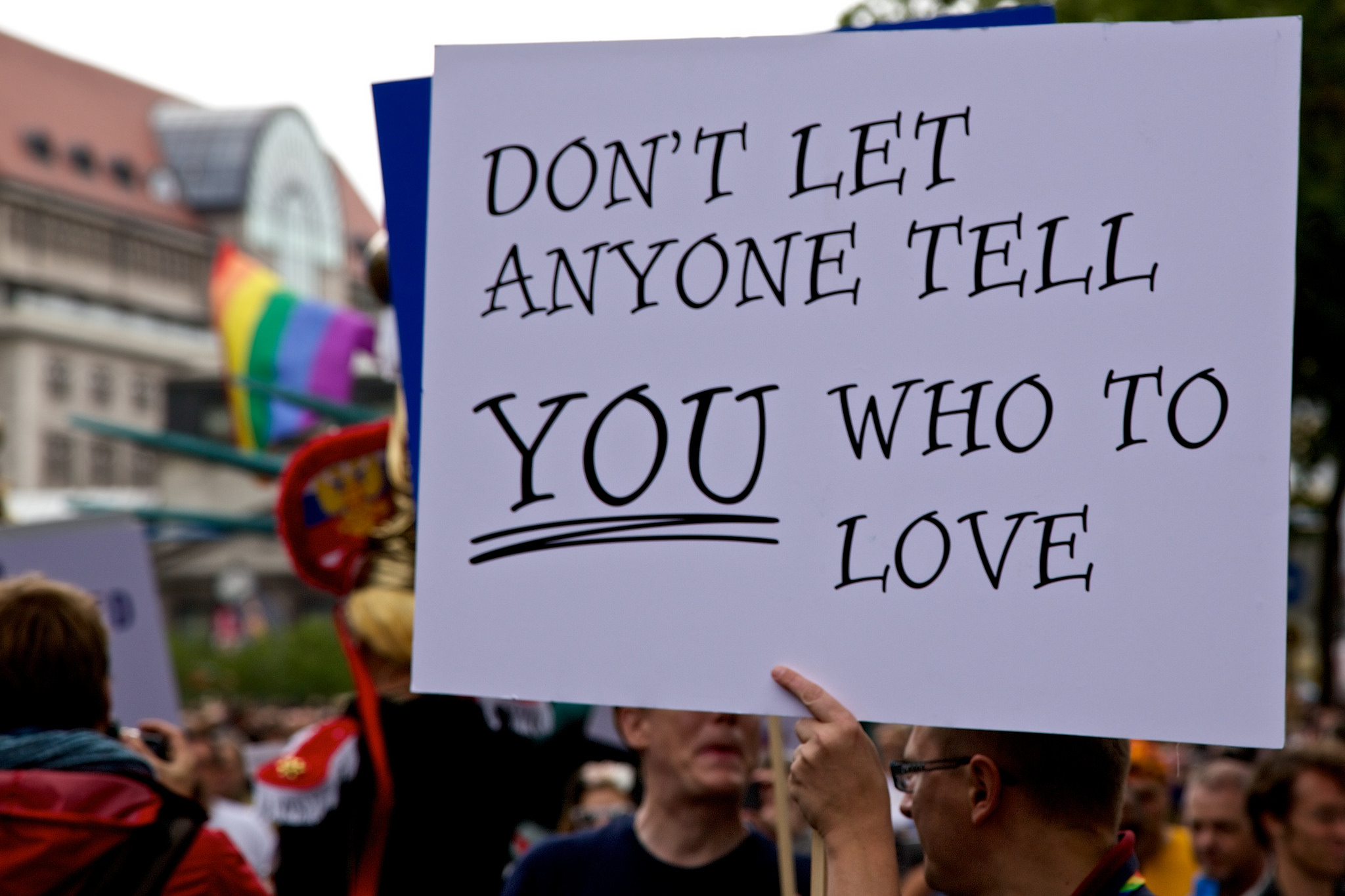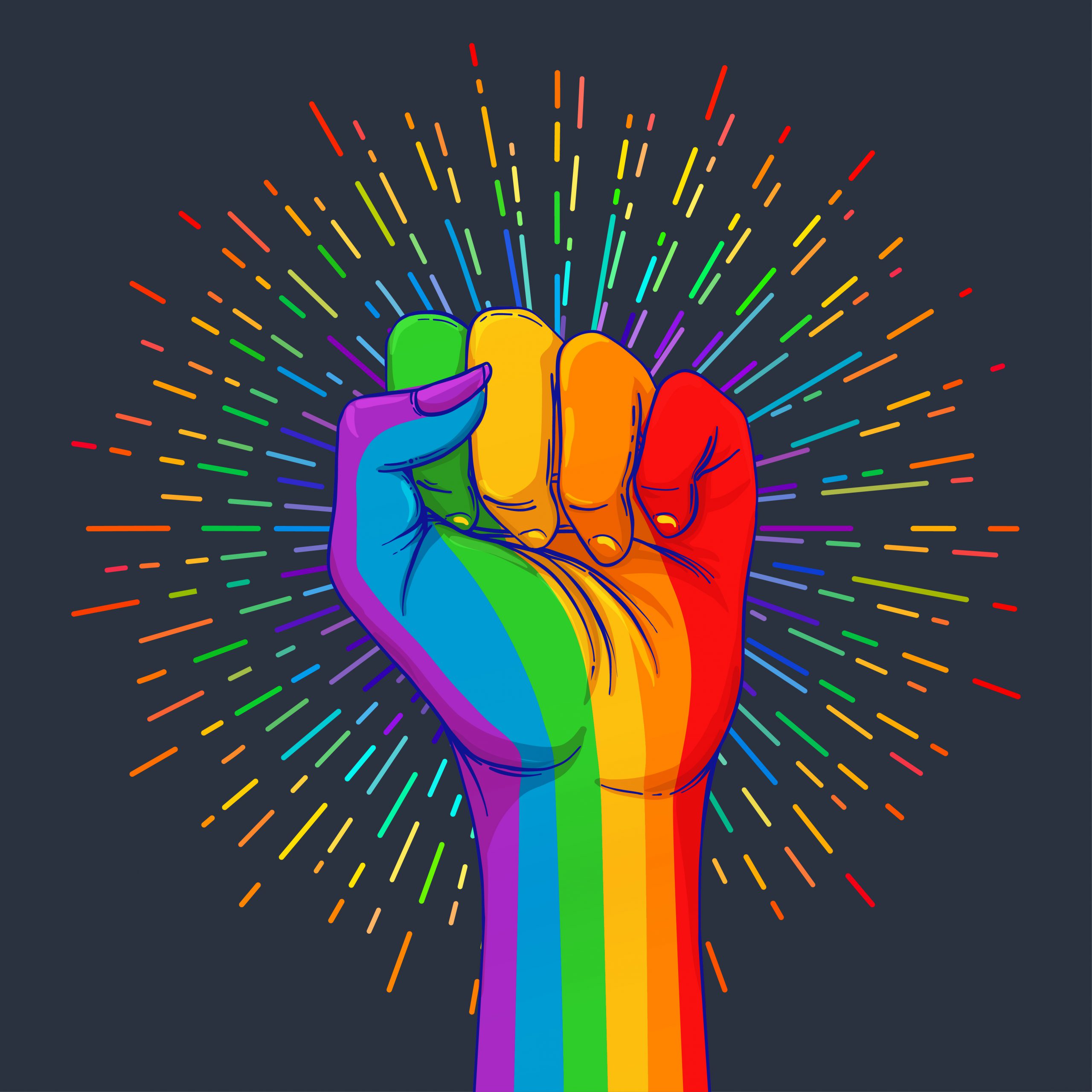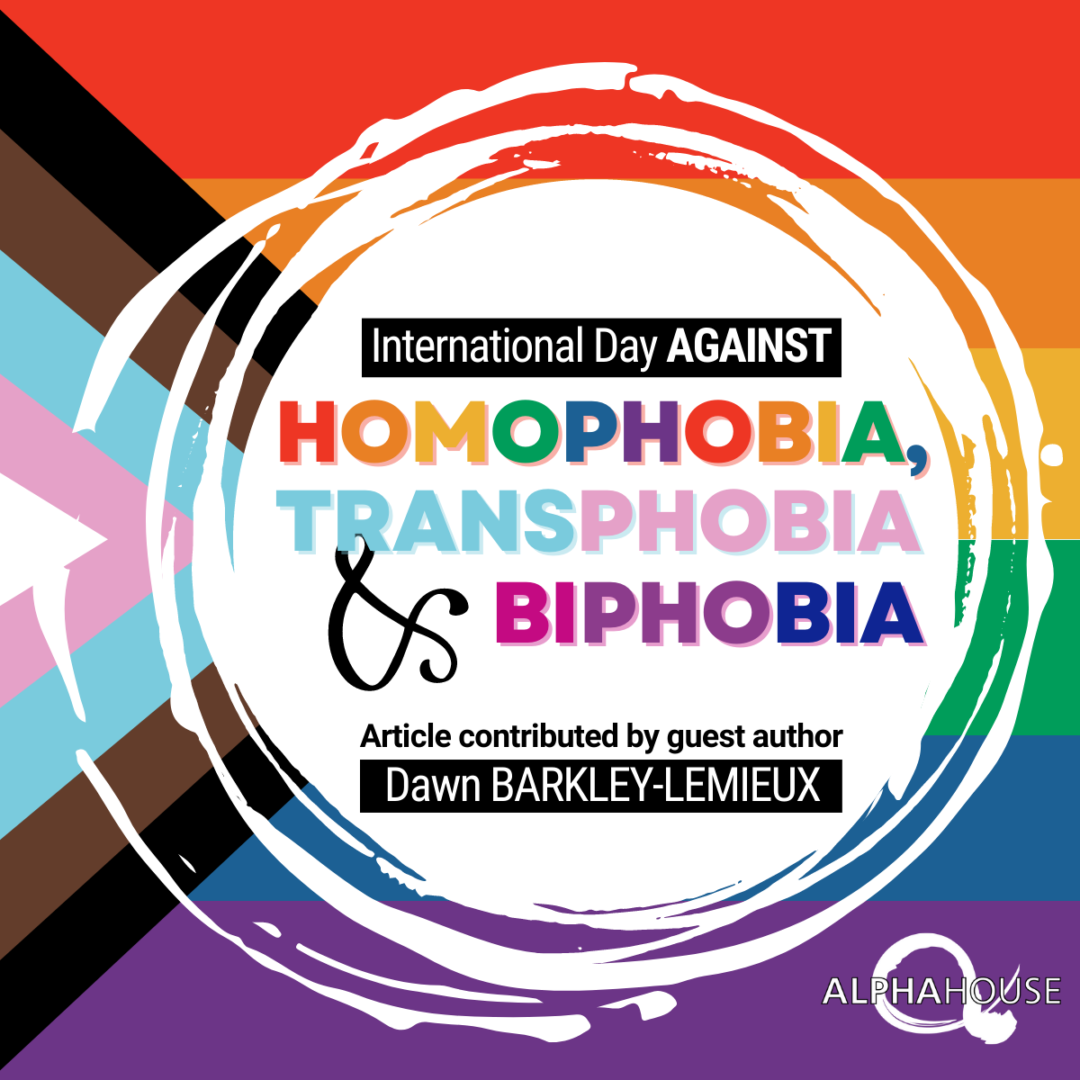Understanding Homophobic Meaning - What It Really Is
Sometimes, you hear words that carry a lot of weight, and it's really helpful to get a clear picture of what they stand for. One such term, which often comes up in conversations about how people treat each other, is "homophobic." It describes a range of feelings and actions that can make life harder for certain groups of people. Getting a good grasp on this word helps us talk about things in a way that makes sense and, in a way, helps everyone.
When we talk about this specific idea, we're essentially looking at an attitude that can show up as a strong dislike or even a fear of individuals who are gay or those who identify as queer. These are people whose personal connections and ways of expressing themselves don't quite fit into traditional boxes. So, it's about more than just a word; it's about how certain viewpoints affect real people, you know?
It's important to recognize that this isn't just about one simple feeling. No, it includes a whole set of negative thoughts and ways of behaving directed at people who are lesbian, gay, or bisexual, or those who others might think are. Basically, it's about how some people feel about or treat others based on who they love or how they see themselves. It's actually a pretty wide-ranging concept, when you get down to it.
Table of Contents
What Is Homophobic Meaning at Its Core?
Digging Deeper into the Homophobic Meaning of Negative Feelings
How Does the Homophobic Meaning Show Up in Action?
The Idea of One Way Being Better Than Another and Homophobic Meaning
Is Biphobia a Part of Homophobic Meaning?
Why Does Understanding Homophobic Meaning Matter?
The Serious Side of Homophobic Meaning
Finding Support and Learning More about Homophobic Meaning
What Is Homophobic Meaning at Its Core?
At its very heart, the homophobic meaning points to a strong sense of fear or a deep dislike directed at gay people or, really, any queer individual. This means someone who doesn't quite fit the typical ways people think about gender or who someone should be attracted to. It's not just a passing thought, but a real, persistent feeling, you know?
This idea, this homophobic meaning, covers a whole spectrum of unfavorable ways of thinking and feeling about people who are homosexual. It also applies to those who are seen as lesbian, gay, or bisexual, or who identify themselves that way. So, it's a broad term for certain kinds of negative reactions, really.
The plain meaning of homophobia, then, is about treating people unfairly, having a strong aversion to, or being scared of homosexuality or gay people. It’s pretty clear, is that, it means taking a stance against someone simply because of who they are or who they love. This can show up in many different ways, as a matter of fact.
A good way to think about the homophobic meaning is as a feeling of fear, a sense of hatred, a general uneasiness with, or a lack of trust in people who are lesbian, gay, or bisexual. It's a collection of rather uncomfortable responses that some people might have towards others. It's not just one thing, but a mix of feelings, sort of.
It's also worth noting that homophobia describes a strong dislike of, or a fixed idea against, people who are part of the LGBTQIA+ community. This group includes individuals who are lesbian, gay, bisexual, transgender, queer, intersex, and asexual, among others. So, it's a general term for a kind of unfair judgment, basically, against a wide range of people.
Digging Deeper into the Homophobic Meaning of Negative Feelings
When we talk about the dislike or fear that forms part of the homophobic meaning, we're looking at reactions that go beyond simple disagreement. This isn't just about having a different opinion; it's about a deep-seated aversion that can lead to unfair treatment. It’s a very specific kind of negative feeling, you know, that impacts how someone views others.
This feeling of aversion, as part of the homophobic meaning, suggests a strong desire to avoid something or someone, often because of a profound discomfort. It's like a gut reaction that pushes a person away from homosexuality or from individuals who are gay. This kind of feeling can be quite powerful, actually, and it shapes interactions.
The fear aspect, too, is a central part of the homophobic meaning. This isn't necessarily a fear for one's own safety, but often a fear of something different, something not understood, or something that challenges established norms. It can be a fear of the unknown, or a fear of what might be perceived as a threat to one's own way of life. It’s a bit complex, really, how this fear manifests.
Then there's the element of mistrust, which also plays into the homophobic meaning. This means having a lack of confidence in, or suspicion towards, people who are lesbian, gay, or bisexual. It's a sense that these individuals cannot be relied upon or that their intentions are somehow questionable, just because of their identity. This can be a really damaging aspect, as a matter of fact, because it erodes trust between people.
These negative feelings, whether it's dislike, fear, or mistrust, are not just internal experiences. They often fuel outward expressions, which is where the meaning of homophobia really becomes visible. It's about how these inner states influence actions and words, creating a barrier between groups of people. It’s pretty significant, the way these feelings can shape behavior.
How Does the Homophobic Meaning Show Up in Action?
The homophobic meaning isn't just about what people feel; it's also very much about what they do or say. Discrimination, for instance, is a key part of this. This means treating someone unfairly because they are gay or perceived to be gay. It can show up in many settings, from workplaces to social circles, and it’s a direct consequence of those negative feelings, so.
When we talk about prejudice against LGBTQIA+ people, as part of the homophobic meaning, we're referring to preconceived notions or opinions that are not based on reason or actual experience. These fixed ideas are often unfavorable and can lead to unfair judgment or treatment of individuals. It's a kind of bias, you know, that impacts how people are viewed.
This prejudice often comes with the idea that being "cishet" is a better way to be. "Cishet" refers to someone whose gender identity matches the one they were given at birth and who is attracted to people of the opposite gender. So, this part of the homophobic meaning suggests that there's a belief that this particular identity is somehow superior to others. It’s a rather harmful idea, actually, when you think about it.
This belief in one identity being superior can lead to people being looked down upon or treated as less worthy. It's a subtle, yet very present, aspect of the homophobic meaning. It creates a hierarchy where certain ways of being are valued more than others, simply based on who someone is or who they love. This can really affect how people feel about themselves, too.
The actions stemming from homophobic meaning can range from small, dismissive gestures to more overt forms of unfairness. It's about a pattern of behavior that stems from a lack of acceptance or a deep-seated discomfort. These actions can build up over time, creating an unwelcoming atmosphere for people who are part of the LGBTQIA+ community. It’s something that really needs attention, as a matter of fact.
The Idea of One Way Being Better Than Another and Homophobic Meaning
A significant aspect of the homophobic meaning is this notion that there is a "right" or "better" way to be, particularly concerning one's gender identity and who one is attracted to. This perspective often positions being cisgender and heterosexual as the preferred or standard way of existing. It’s a kind of narrow view, really, that doesn't make room for diversity.
This idea, that being cishet is a superior identity, forms a subtle but powerful part of the overall homophobic meaning. It's not always spoken out loud, but it can be felt in the way people are treated or in the expectations placed upon them. It sets up a benchmark that many people simply don't fit, which can be quite isolating, you know.
When this belief is present, it can lead to the marginalization of those who do not conform to it. People who are gay, lesbian, bisexual, or other queer identities might find themselves facing unspoken judgments or unfair assumptions. This is a quiet but persistent form of the homophobic meaning at work, shaping social interactions and perceptions. It’s pretty impactful, in some respects.
This way of thinking can also influence how people talk about relationships, families, and even personal values. It can mean that anything outside of the cishet experience is seen as less valid, less natural, or even incorrect. It's a deeply ingrained idea that can make it harder for people to simply be themselves, actually, without facing scrutiny.
Ultimately, this part of the homophobic meaning is about a lack of acceptance for the rich variety of human experience. It suggests a narrow definition of what is considered normal or acceptable, which can be quite limiting for everyone involved. It’s a challenge to broader understanding, so, and to genuine connection between people.
Is Biphobia a Part of Homophobic Meaning?
When we consider the full scope of homophobic meaning, it's important to look at related concepts, such as biphobia. Biphobia, in its essence, is a specific form of fear, hatred, discomfort, or mistrust, but it is directed particularly at people who are bisexual. So, while homophobia is a broader term, biphobia is a distinct but connected experience, you know.
This means that while someone might generally harbor negative feelings towards gay individuals, they might also hold specific negative feelings towards bisexual people. The nuances of biphobia, as part of the larger homophobic meaning, often involve unique stereotypes or misunderstandings about bisexuality itself. It's a slightly different flavor of prejudice, as a matter of fact.
Biphobia, therefore, contributes to the overall landscape of the homophobic meaning by adding another layer of unfair treatment and misunderstanding. It highlights that negative attitudes aren't always uniform; they can be tailored to specific identities within the broader LGBTQIA+ community. This makes the situation a bit more complicated, actually, for those who experience it.
Understanding biphobia helps us see that the homophobic meaning is not a single, simple thing. It's a collection of related prejudices that can target different groups in different ways. Recognizing this distinction is important for offering proper support and for truly grasping the full spectrum of negative attitudes. It's pretty essential, really, to see these differences.
Why Does Understanding Homophobic Meaning Matter?
Learning about the homophobic meaning is not just an academic exercise; it has real-world consequences. One very clear reason it matters is that homophobia is a severe form of prejudice. This means it's a deeply rooted, unfair judgment against people who are gay, lesbian, or bisexual. It's not a light matter, by the way, but something with serious weight.
When we understand the definition and implications of homophobic meaning, we start to see why it causes harm. It's about recognizing that these attitudes and actions can create a difficult environment for people just trying to live their lives. It helps us connect the dots between a way of thinking and its impact on individuals. It’s pretty crucial, really, to make that connection.
This knowledge also helps us to identify when homophobia is happening, whether it's in a subtle comment or a more obvious act of unfairness. Without a clear grasp of the homophobic meaning, it can be easy to miss these moments or to dismiss them as unimportant. So, having this awareness allows us to be more observant and responsive, you know.
Furthermore, understanding the homophobic meaning is a step towards creating a more accepting and welcoming world for everyone. When we know what something is, we are better equipped to address it and to support those who are affected by it. It’s about building a community where people feel safe and respected, actually, regardless of who they are or who they love.
The Serious Side of Homophobic Meaning
The impact of homophobic meaning goes beyond just uncomfortable feelings or unfair treatment; it can truly affect a person's well-being. The information available suggests that understanding homophobia is important because it can have consequences for a person's health. This isn't just about physical health, but also about a person's mental and emotional state. It's a very serious consideration, as a matter of fact.
When individuals face consistent dislike, mistrust, or discrimination because of the homophobic meaning, it can create a lot of stress and difficulty in their lives. This ongoing pressure can wear a person down, affecting how they feel about themselves and their place in the world. It's a kind of burden that many people carry, you know, just from existing.
The severity of this prejudice, as part of the homophobic meaning, means that its effects are not minor. It can lead to feelings of isolation, sadness, or a general sense of being unwelcome. These are not small things; they are significant challenges that can impact a person's ability to thrive and connect with others. It's pretty disheartening, really, to think about it.
Recognizing this serious side of homophobic meaning encourages us to think about how we can support people who are experiencing these challenges. It pushes us to consider what it means to be a supportive presence for others, simply by understanding the difficulties they might face. This awareness is a powerful tool for positive change, so.
Finding Support and Learning More about Homophobic Meaning
For those who wish to learn more about the homophobic meaning and its broader impact, there are places to find additional information. This might include resources that talk about how it can affect a person's health, offering insights into the deeper consequences of such prejudice. It's a way to deepen one's understanding, you know, beyond just the basic definition.
These resources also often touch upon what it means to be a supportive individual for those affected by homophobic meaning. While not giving specific instructions, they point towards the idea of standing with and supporting people who face prejudice. This concept of being a good ally is about showing solidarity and working towards a more accepting environment. It’s a really important aspect, actually.
Looking into these sources can help one grasp the nuances of homophobic meaning and its related terms, like biphobia. It’s about getting a more complete picture of the challenges faced by LGBTQIA+ individuals and understanding the various ways prejudice can manifest. This comprehensive view is pretty helpful, in some respects, for anyone wanting to make a difference.
Ultimately, seeking out more knowledge about homophobic meaning is a step towards fostering a community where everyone feels valued and safe. It's about recognizing the impact of words and actions, and choosing to contribute to a more positive and inclusive world. This ongoing learning is a vital part of building a better future for all, you know.

A Brief History Of Homophobia | EachOther

What is Homophobia? – Young Scot

International Day Against Homophobia, Transphobia, and Biphobia - Alpha